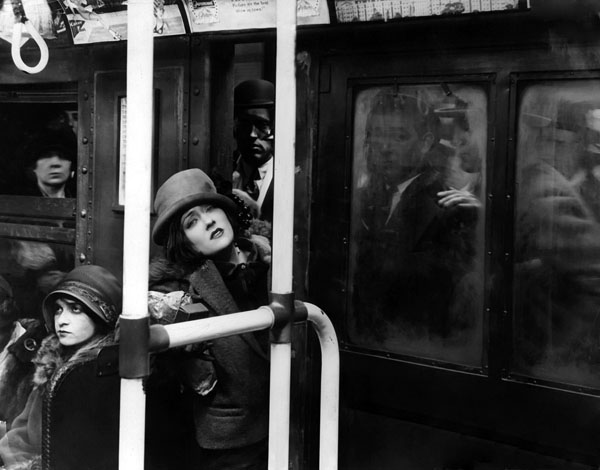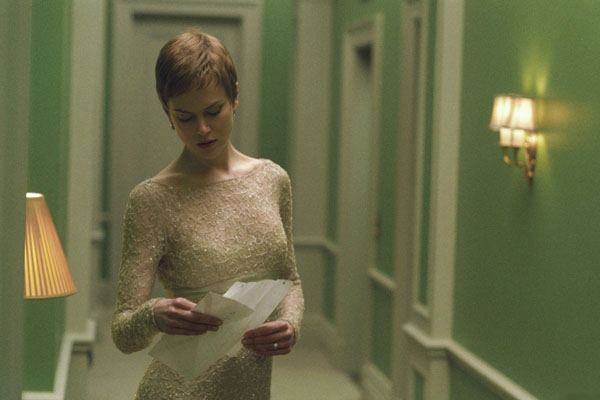Hours before MoMA’s retrospective Allan Dwan and the Rise and Decline of the Hollywood Studios opens this evening (it runs through July 8), a major publication, Allan Dwan: A Dossier, has, as they say, dropped. Edited by David Phelps and Gina Telaroli and presented by LUMIÈRE, this 460-page collection features 51 articles in five languages by 39 writers, and—get this—it’s free. Just click to download. As Telaroli writes at the Notebook, she and Phelps hope that the dossier “will serve as a go-to resource on the work of Dwan. Many of the pieces are on films that, as far as we can tell, have received very little, if any, individual attention, and together they paint a comprehensive portrait of an artist and how his work changed, or, conversely, stayed mostly the same while always adapting, due to the ever-shifting mechanism that was the Hollywood studio system.”
Adds Farran Nehme: “Dwan is a name recognized by most cinephiles worth their salt, but the movies he made don’t have the kind of household currency enjoyed by Ford, Hawks, or any number of his contemporaries.” She’s contributed a piece on Manhandled (1924), which opens with “the shopgirl heroine Tessie enduring a subway ride as awful as any in film history. Tessie was played by the immortal Gloria Swanson. She often said Dwan was her favorite director, and she unhesitatingly described him as a genius.”
The New York Review of Books has posted an excerpt from a two-part essay Gore Vidal wrote for two issues in May 1973 (and both parts are available in full). From “The Ashes of Hollywood”:
The bad movies we made twenty years ago are now regarded in altogether too many circles as important aspects of what the new illiterates want to believe is the only significant art form of the twentieth century. An entire generation has been brought up to admire the product of that era. Like so many dinosaur droppings, the old Hollywood films have petrified into something rich, strange, numinous-golden. For any survivor of the Writers’ Table (alien or indigenous integer), it is astonishing to find young directors like Bertolucci, Bogdanovich, Truffaut reverently repeating or echoing or paying homage to the sort of kitsch we created first time around with a good deal of “help” from our producers and practically none at all from the directors—if one may quickly set aside the myth of the director as auteur. Golden age movies were the work of producer(s) and writer(s).
Meantime, in the current issue, Jonathan Galassi, reviewing the new volume of Italo Calvino’s Letters, 1941-1985, concentrates in one passage on Calvino’s relationship with Pier Paolo Pasolini, noting that “the two writers were on essentially divergent tracks, Calvino moving farther and farther away from both realism and engagement with politics, while Pasolini’s immersion in the crisis of the actual became ever more despairingly radical…. Calvino had become allergic to Pasolini’s willful estrangement from and repudiation of the world around him, but even more to the increasing stridency of his public pronouncements (‘Your use of words has shifted to communicating a presence traumatically as though projecting it on big screens’). In 1976, not long after his friend’s murder, Calvino, writing to the poet Andrea Zanzotto, called Pasolini ‘the only D’Annunzio figure of our times, as the ideologizer of eros and the eroticizer of ideology.'”
“If you’re looking for a roadmap to [Vincente] Minnelli’s films, try Dante’s Divine Comedy,” suggests C. Jerry Kutner at Bright Lights. “The director tends to see daily life as a ‘Purgatorio’ from which we are occasionally granted glimpses of ‘Paradiso’ (Heaven) and at other times dragged into ‘Inferno’ (Hell). The descent into hell turns out to be one of the most frequently recurring motifs in the Minnelli filmography.”
At Shadow and Act, Daniel Garrett presents “Notes on Elevating the Conversation about African American Film.”
In other news. “Paul Schrader will preside over the jury of the Venice Film Festival’s Horizons section for cutting-edge works and also bring his buzzed-about The Canyons to the Lido,” reports Nick Vivarelli for Variety.
Chaz Ebert welcomes Matt Zoller Seitz as the new Editor-in-chief for Rogerebert.com. It’s a marvelous fit, so major congrats to both!
New York. Harris Savides: Visual Poet, a tribute to the late cinematographer, opens today at MoMA and runs through June 21. Previewing the series for Artforum, Melissa Anderson concentrates on Jonathan Glazer’s “majestic, outlandish” Birth (2004), screening tonight and next Wednesday. Noting that some of the films “will be introduced by their directors, including Noah Baumbach, David Fincher and Sofia Coppola,” Time Out New York‘s David Fear, Joshua Rothkopf, and Keith Uhlich highlight some of their favorite Savides shots.
Open Show NY and the Bronx Documentary Center are co-hosting a one-year anniversary show this evening.
Toronto. TIFF Bell Lightbox’s 80-film-strong series A Century of Chinese Cinema, featuring “digitally restored or archival 35mm prints of films that chart the shared cultural and historical heritage of the Mainland, Hong Kong and Taiwan,” opens today and runs through August 11. As Screen‘s Jeremy Kay notes, special guests will include Christopher Doyle, Johnnie To, and Jackie Chan. David Bordwell has posted a preview of the talk he’ll be delivering, “Motion Emotion: The Art of the Martial Arts Film.”
In the works. Kristen Stewart’s joining Juliette Binoche and Chloe Moretz in Olivier Assayas‘s English-language debut, Sils Maria, reports Deadline‘s Mike Fleming Jr. She’s also taking the lead in Camp X-Ray, “a politically charged drama written and directed by Peter Sattler.”
Obit. “Helen Hanft, a brassy performer who established herself as a regular presence on the small stages of the Off-Off-Broadway movement of the 1960s and ’70s to such an extent that New York Times drama critic Mel Gussow called her the ‘Ethel Mermen of the Underground,’ died from intestinal complications May 30 at Roosevelt Hospital,” reports Robert Simonson for Playbill. She was 79. “Film roles included small parts in Woody Allen’s Manhattan, Stardust Memories, and The Purple Rose of Cairo, Paul Mazursky’s Next Stop, Greenwich Village and Willie & Phil, 9½ Weeks, Moonstruck, Arthur, and Used People.”
For news and tips throughout the day every day, follow @KeyframeDaily on Twitter and/or the RSS feed. Get Keyframe Daily in your inbox by signing in at fandor.com/daily.





